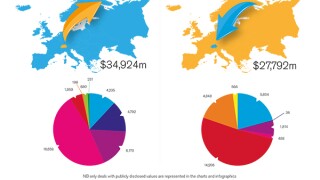Bär & Karrer
All the winning deals, teams, individuals and firms were revealed at IFLR’s ceremony in London on April 4
Sponsored
Sponsored
-
Sponsored by Bär & KarrerThe Swiss federal government’s pre-draft DLT Act will be under public consultation until the end of June 2019. Daniel Flühmann and Peter Hsu of Bär & Karrer look at some of its most forward-thinking proposals
-
Sponsored by Bär & KarrerCapital gains realised through a disposal of shares held for private investment purposes by Swiss resident individuals are generally exempt from Swiss income taxes. In certain circumstances, such capital gains are assimilated to dividends, salary or compensation payments for the renouncing of a right, in which case they become subject to income tax.
-
Sponsored by Bär & KarrerDaniel Raun and Philippe Seiler, Bär & Karrer



